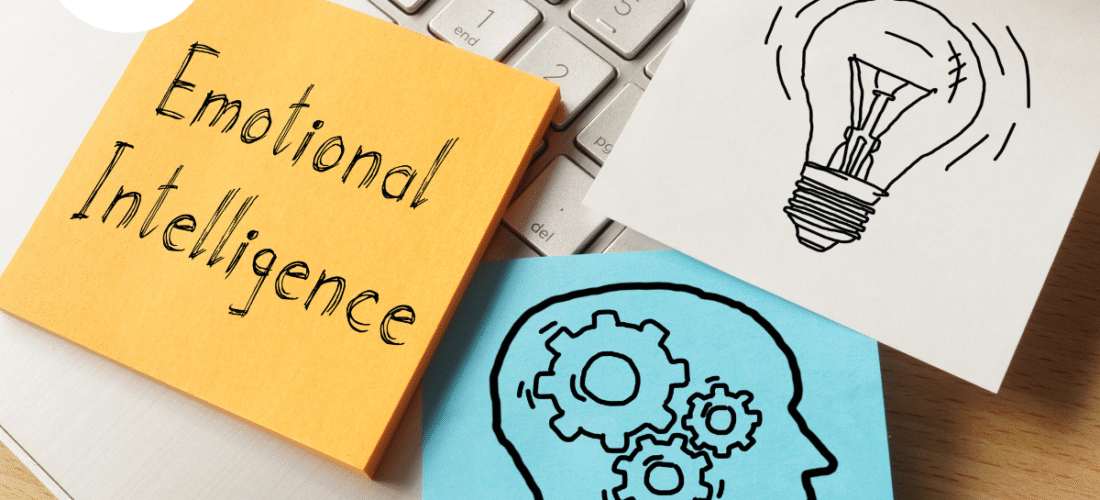In a world dominated by technology and quick exchanges, the value of genuine human connection has never been more important. Yet, the ability to build meaningful relationships—whether personal, professional, or casual—depends on something deeper than just communication skills. It hinges on emotional intelligence.
Emotional intelligence, often referred to as EQ, is the ability to recognize, understand, manage, and influence emotions—both our own and those of others. Unlike IQ, which measures intellectual ability, EQ determines how well we navigate the emotional landscape of daily life. And in doing so, it shapes the quality of our relationships.
At its core, emotional intelligence allows us to be more present, more empathetic, and more attuned to others’ experiences. These qualities are essential when it comes to forging strong connections.
Understanding Ourselves First
The first step to improving how we connect with others is developing self-awareness. Emotional intelligence begins with an honest understanding of our own emotions—how we feel in different situations, what triggers us, and how our mood impacts our behavior. When we know ourselves better, we are less likely to react impulsively or project our frustrations onto others.
For instance, recognizing that you’re feeling overwhelmed before snapping at a friend or colleague gives you the power to pause and respond thoughtfully instead. This simple awareness transforms potential conflict into an opportunity for understanding. By tuning into your emotional state, you create space for intentional communication instead of reactive behavior.
Empathy Deepens Our Connections
Empathy is one of the most powerful components of emotional intelligence. It’s the ability to step into someone else’s shoes and truly understand their perspective. Unlike sympathy, which might just express pity, empathy leads to deeper listening and shared emotional experience.
When you actively listen to someone and respond with empathy, you make them feel seen and valued. In relationships, this translates into trust and openness. Empathy helps us support our loved ones through challenges, resolve conflicts without judgment, and collaborate more effectively with teammates. It’s a bridge that connects hearts and minds, often without needing many words.
In everyday life, this could be as simple as saying, “That sounds really tough—do you want to talk about it?” instead of offering quick fixes. These small moments of empathy accumulate, creating stronger bonds and deeper mutual respect.
Better Regulation Means Fewer Regrets
Emotional intelligence isn’t just about understanding feelings—it’s about managing them too. Emotional regulation helps prevent situations from escalating and allows us to approach challenges with clarity. When people lack this skill, even minor misunderstandings can turn into long-standing rifts.
By learning to pause, take a breath, and respond thoughtfully, emotionally intelligent individuals reduce the likelihood of regretful words or actions. They’re more adaptable in tense moments and better at diffusing tension before it harms the relationship.
In both personal and professional spheres, emotional regulation can prevent unnecessary drama and promote a sense of psychological safety. When people know you won’t lash out under pressure, they feel more comfortable being honest and vulnerable with you.
Emotional Intelligence Builds Trust
Trust is the foundation of every meaningful relationship. It isn’t built overnight—it develops through consistent actions and communication. Emotionally intelligent people foster trust by being genuine, dependable, and emotionally consistent.
They don’t shy away from expressing their feelings, but they do so in a constructive way. They also recognize when others need space, support, or encouragement. By being emotionally available and attuned, they demonstrate that they’re safe to be around. That kind of consistency builds emotional security, which strengthens all types of connections.
Trust also deepens when you acknowledge mistakes and apologize sincerely. Emotional intelligence gives people the humility to admit when they’re wrong and the insight to understand how their actions affected someone else. These moments of accountability can actually bring people closer together, rather than drive them apart.
The Ripple Effect In Social Environments
When emotional intelligence becomes part of your everyday behavior, it not only enhances individual relationships but also transforms the larger social environment. Whether it’s within a family, a workplace, or a community, emotionally intelligent behavior sets a positive tone. It encourages openness, reduces toxic dynamics, and promotes collaboration.
In a team setting, someone with high EQ helps resolve tension, ensures that everyone feels heard, and contributes to a culture of respect. In families, emotionally intelligent members act as emotional anchors, providing stability during periods of stress or change.
We often think of social skills as being about charm or conversation, but real connection goes deeper. People are drawn to those who make them feel comfortable and understood. Emotional intelligence makes that possible—not through performance, but through authenticity and presence.
Conclusion
In every sphere of life, from intimate relationships to workplace dynamics, emotional intelligence is what turns interaction into connection. It’s not about being overly sensitive or always agreeable. Rather, it’s about being aware, empathetic, and mindful of the emotional currents that flow through every relationship. As the world becomes more digitally connected yet emotionally distant, developing emotional intelligence is more than a personal advantage—it’s a social necessity. Those who invest in their EQ not only improve their own lives but also elevate the experiences of those around them. Better conversations, stronger bonds, and lasting trust all stem from this single, powerful skill set. Emotional intelligence isn’t just the key to better connections—it’s the heart of them.
Check these out for related content:
https://uggaustraliasalenet.com
https://kumpulanbandarpoker.org
https://mrfinancechallenge.com
